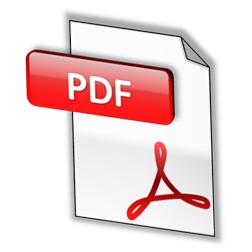
Communication and Negotiation Skills
102807
2024-25
MASTER'S DEGREE MBA IN INTERNATIONAL MANAGEMENT
3
MANDATORY
Cuatrimestral
• Perception: The important of perception in intercultural communication and
business. Concepts of overconfidence, visual illusion, value incongruence and
the perfect translation assumption.
• Structuring your presentation correctly and focusing on crafting the
correct message. Starts, Ends, Middle. Presentation Practice. Presentation
Theory: Rhetoric and Stories. Persuasion. Presentation Practice.
• De Bono’s theory on meetings.
• Creativity
• Negotiation: Preparation, Key variables. Listening and Questioning.
Opening
• Negotiations: Proposals.
• Communication styles
CO1 - To learn about business management analytics in dynamic and complex
environments, such as the international environment.
CO2 - To acquire a body of theoretical and practical knowledge and
learning skills, which will enable those who remain interested to pursue
further, more specialised studies in the field of advanced research or
doctoral studies.
CO3 - To master the basic tools of information and communication
technologies for exercising of their profession and for learning.
CO4 - To understand the concepts, theories and instruments for analysing
and developing business internationalisation plans.
CO5 - To understand the nature of problems in the organisation and
therefore the application of suitable tools by developing analytical skills.
CO6 - To acquire the skills for professional document drafting and
reporting in the field of international business.
S1 - To apply the theoretical and practical knowledge acquired, with a high
degree of independence, in both national and international companies, be they
small or medium-sized or companies of a more multinational dimension, and even
in non-business organisations whose management requires an international
vision.
S2 - To apply the analytical skills acquired in defining and approaching
new problems and in searching for solutions both in a national and
international business context.
S3 - To be able to collect, record and interpret macroeconomic data,
country information, industry and business information, financial and
accounting data, statistical data, and relevant research results to
systematise business decision-making processes in international environments.
S4 - To apply the appropriate procedure to achieving an international
business objective.
S6 - To manage digital platforms, technological, audiovisual and
computer media to search for information and for effective communication of
business projects.
S8 - To analyse the results of market and competition research to
propose strategic orientations and operational actions.
S9 - To manage a business internationalisation project and assume
managerial responsibilities.
C1 - To work in multidisciplinary and multicultural teams, in highly demanding
situations in terms of time (deadlines for designing and executing projects
and cases) and results.
C2 - To develop business and personal activities within the strictest
ethical and socially responsible behaviours, as well as to develop sensitivity
towards social and environmental issues.
C3 - To express themselves correctly, both orally and in writing, in
Spanish and English, maintaining an appropriate image in their professional
activity.
C4 - To lead the process of designing the international strategy.
C5 - To work in a team, prioritising the precision of the results and
the soundness and originality of the proposals. .
C6 - To lead and develop international business negotiation processes.
TA2.- Practical classes
TA3.- Individual and group work
TA5.- Individual student work
Type of activity
Hours
% On site
21
100
30
10
24
0
There is a combination of different methodologies used on the course:
• Learning by receiving: The participant will receive information in
lectures and in reduced groups which they will have to study, discuss and
apply.
• Learning by doing: Giving presentations, participating in meetings and
negotiations. Most homework will be relevant to work done in class so
preparation outside will be directly connected to subsequent practice.
• Learning by using tested models
The evaluation of the subject in its standard format will consist of three
broad lines:
In class: 40 %
• Group Presentation 20%
• Individual Journals & Participation 20%
Out of class: 30 %
• Forum Entries (Individual) 10%
• Group Project Paper 20%
Exams: 30%
• Final exam 30%
+/- 10% The instructors can change the final mark depending on the
quantity/quality of interventions of the student both in class, in the on-line
forums and with ideas presented in the out of class work.
Evaluation criteria: In the case of each element clear guidelines will
be given on what is expected from each presentation, negotiation or exercise
so the students know what they will have to do to get maximum points.
In its second and following rounds of evaluations (in the case that the
student misses or fails the first round) 100% of the qualification will be a
result of an exam which could be a multiple choice and/or an essay and in a
format that will be announced with sufficient time beforehand.
Porfessor responsible for the subject
COURSE READING (RECOMMENDED, NOT OBLIGATORY)
• The Negotiation Jungle, Brendan Anglin & Cristina Manso
• Getting to Yes, Fisher, Ury, Patton.
• Getting Past No, William Ury
• Bargaining for Advantage, Richard Shell.
• Six Thinking Hats, Edward de Bono
• Thinkertoys, Michalko
• Presentation Zen, Garr Reynolds
• Presenting to Win, Jerry Weissman
• The Culture Map. Erin Meyer.
This document can be used as reference documentation of this subject for the application for recognition of credits in other study programmes. For its full effect, it should be stamped by UIMP Student's Office.

Description undefined
Cuatrimestral
ECTS Credits: 3
Anglin , Brendan
Master en Relaciones Internationales.
Director de Fresh Ideas Internacional.
Teacher responsible for the subject


